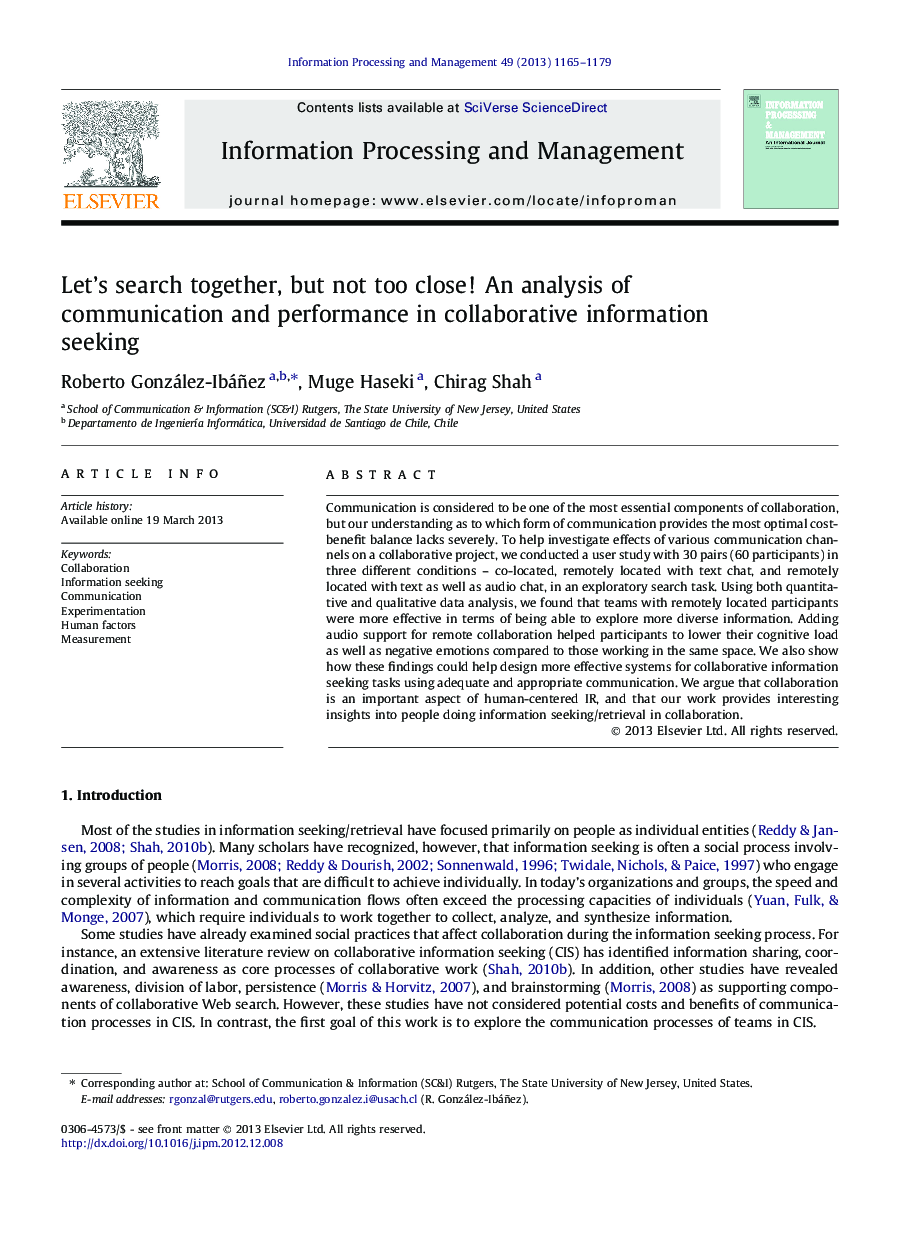| Article ID | Journal | Published Year | Pages | File Type |
|---|---|---|---|---|
| 515401 | Information Processing & Management | 2013 | 15 Pages |
Communication is considered to be one of the most essential components of collaboration, but our understanding as to which form of communication provides the most optimal cost-benefit balance lacks severely. To help investigate effects of various communication channels on a collaborative project, we conducted a user study with 30 pairs (60 participants) in three different conditions – co-located, remotely located with text chat, and remotely located with text as well as audio chat, in an exploratory search task. Using both quantitative and qualitative data analysis, we found that teams with remotely located participants were more effective in terms of being able to explore more diverse information. Adding audio support for remote collaboration helped participants to lower their cognitive load as well as negative emotions compared to those working in the same space. We also show how these findings could help design more effective systems for collaborative information seeking tasks using adequate and appropriate communication. We argue that collaboration is an important aspect of human-centered IR, and that our work provides interesting insights into people doing information seeking/retrieval in collaboration.
► We study three communication contexts in collaborative information seeking (CIS). ► Remotely located participants are more effective finding diverse information. ► Those who use text-based communication are more task oriented. ► Audio support in remote CIS provides balance between task and social communication. ► Audio support in remote CIS helps users to lower their cognitive and affective load.
